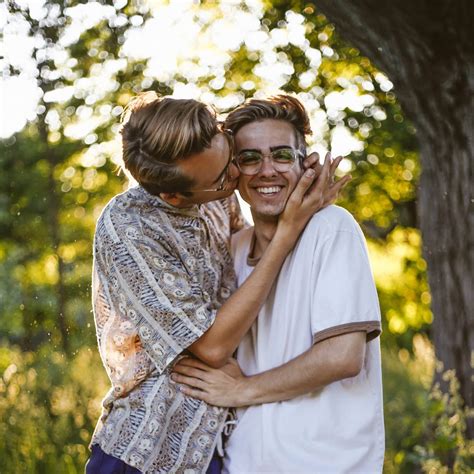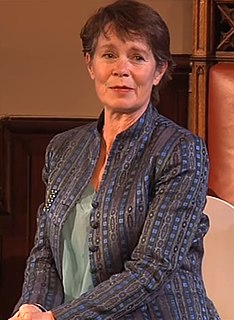A Quote by Tyra Banks
Rihanna told me her parents used to argue so intensely, she used to get these headaches, these migraines that were almost not even treatable with medicine. The moment her parents separated, her migraines went away.
Related Quotes
In the eulogy by the graveside, I told everyone how my sister and I used to sing to each other on our birthday. I told them that, when I thought of my sister, I could still hear her laughter, sense her optimism, and feel her faith. I told them that my sister was the kindest person I;ve ever known, and that the world was a sadder place without her in it. And finally, I told them to remember my sister with a smile, like I did, for even though she was being buried near my parents, the best parts of her would always stay alive, deep within our hearts.
She's different from the girls I'm used to dating. She doesn't get tired of my stories and jokes or expect me to start reading her mind. She doesn't want me to dress better or put highlights in my hair or serious up. I'm not a lifestyle accessory to her. I'm a necessity. I'm the guy that's going to crack open her cocoon. She doesn't need to change me - she needs me to change her. At least until her little butterfly wings get strong enough to fly away.
I met a girl when I was in third grade. Kids were beating her up - she was deaf - so I walked her home. Her parents were deaf and they gave me the alphabet on a card. I learned it and taught my friends how to do the alphabet - which was outlawed in our school because we used to talk to each other in class.
I was bullied by my siblings and cousins, so make-believe was a way in which I could be in charge. When I was like 10 and my sister was about five, I convinced her that she was going to jail because she used a bad word. The doorbell happened to ring, and I told her it was the police. I made her pack her bags. She was crying, and then I said to her, "I forgive you, and I'm gonna tell the cop to go away." Then, of course, she loved me. It was terrible - she still remembers it. I had a sordid sense of humor.
When Marlee [Matlin] won her Oscar, she said, "and I just want to thank my parents." When I was saying those words for her, I knew my parents were in the audience. I was saying it for her and a little bit for myself, even though I wasn't saying it in sign language and they didn't understand what I was saying.
If I look back, my mother was always out. I can remember the perfume and her scarlet chiffon dress and crystal beads, going to a party. She used to play her violin at restaurants later on in life and at old people's homes. She loved the races, which she used to take me to as a child: our carpets were bought with her winnings. Loved her chickens.
The adolescent does not develop her identity and individuality by moving outside her family. She is not triggered by some magic unconscious dynamic whereby she rejects her family in favour of her peers or of a larger society.... She continues to develop in relation to her parents. Her mother continues to have more influence over her than either her father or her friends.
She realized how many of her beliefs were either unrealistic or belonged to her deceased parents and her ex-husband. She also realized that her expectations for herself and others were sometimes too rigid. She was trying to live up to what everyone else said was best for her, which made her depressed and hard to be around at times. Once she changed her beliefs about herself and others, she began to smile more and enjoy life.
She stared at herself in the mirror. Her eyes were dark, almost black, filled with pain. She'd let someone do that to her. She'd known all along she felt things too deeply. She became attached. She didn't want a lover who could walk away from her, because she could never do that - love someone completely and survive intact if her left her.
Her little shoulders drove me mad; I hugged her and hugged her. And she loved it. 'I love love,' she said, closing her eyes. I promised her beautiful love. I gloated over her. Our stories were told; we subsided into silence and sweet anticipatory thoughts. It was as simple as that. You could have all your Peaches and Bettys and Marylous and Ritas and Camilles and Inezes in this world; this was my girl and my kind of girlsoul, and I told her that.










































